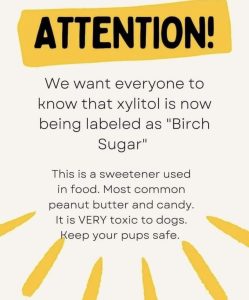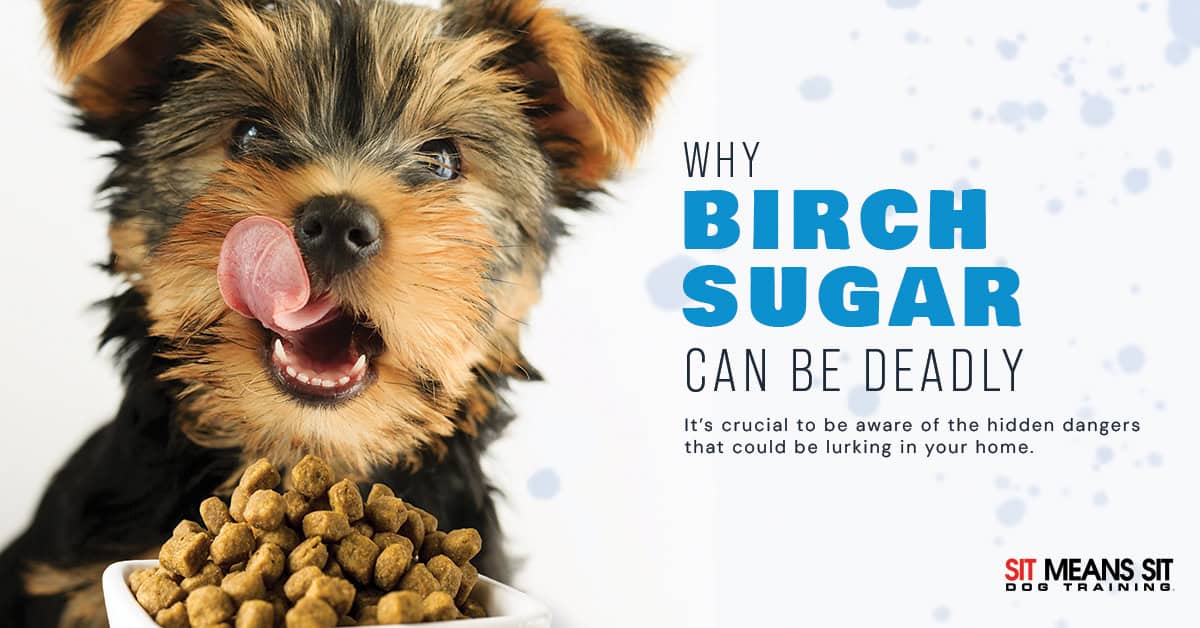
As a pet owner, it’s crucial to be aware of the hidden dangers that could be lurking in your home. One such danger, often overlooked, is birch sugar, also known as xylitol. While this sugar substitute may be a popular choice for humans looking to reduce their sugar intake, it poses a significant threat to our canine companions.
What is Xylitol?
To begin with, xylitol is a naturally occurring alcohol found in many plants. It’s commonly used as a sugar substitute in a variety of products, including sugar-free gum, mints, peanut butter, toothpaste, and baked goods. For humans, xylitol offers a sweet taste with fewer calories and a lower glycemic index than regular sugar, making it an attractive alternative. However, what is beneficial for us can be extremely harmful to dogs.
How Xylitol Affects Dogs
Even a small amount of xylitol can cause severe health issues in dogs. When ingested, xylitol is quickly absorbed into the bloodstream, causing a rapid release of insulin from the pancreas. Consequently, this surge of insulin can lead to a dangerous drop in blood sugar levels, a condition known as hypoglycemia. Symptoms of hypoglycemia in dogs can include:
- Vomiting
- Loss of coordination
- Weakness
- Seizures
- Coma
In addition to hypoglycemia, xylitol can also cause liver failure in dogs, which can be fatal if not treated promptly. The onset of symptoms can occur within minutes to hours after ingestion, making it critical to seek veterinary care immediately if you suspect your dog has consumed xylitol.
Common Products Containing Xylitol
Xylitol is found in a wide range of products, including but not limited to:
- Sugar-free gum
- Sugar-free mints
- Peanut butter
- Some types of toothpaste
- Certain baked goods
- Sugar-free candies
- Chewable vitamins
Keeping Your Dog Safe
To ensure the safety of your furry friend, it’s essential to keep all products containing xylitol out of their reach. Here are some tips:
- Always check the labels of products for xylitol before bringing them into your home.
- Store xylitol-containing products in secure locations that your dog cannot access.
- Educate family members and visitors about the dangers of xylitol and the importance of keeping these products away from pets.
- Be cautious when giving your dog human food, especially baked goods and peanut butter, as they may contain xylitol.
Spread the Word
Raising awareness about the dangers of xylitol is crucial in preventing accidental poisoning in dogs. Share this information with fellow pet owners and encourage them to stay vigilant about the products they bring into their homes. By spreading the word, we can help protect our four-legged friends from this hidden threat.
For more information on pet safety and health, visit our website regularly and stay informed about potential hazards to keep your pets safe and healthy.
Accidents Happen and we sometimes drop things or dogs find things . Does your dog “leave it ” or “drop it” when requested?

